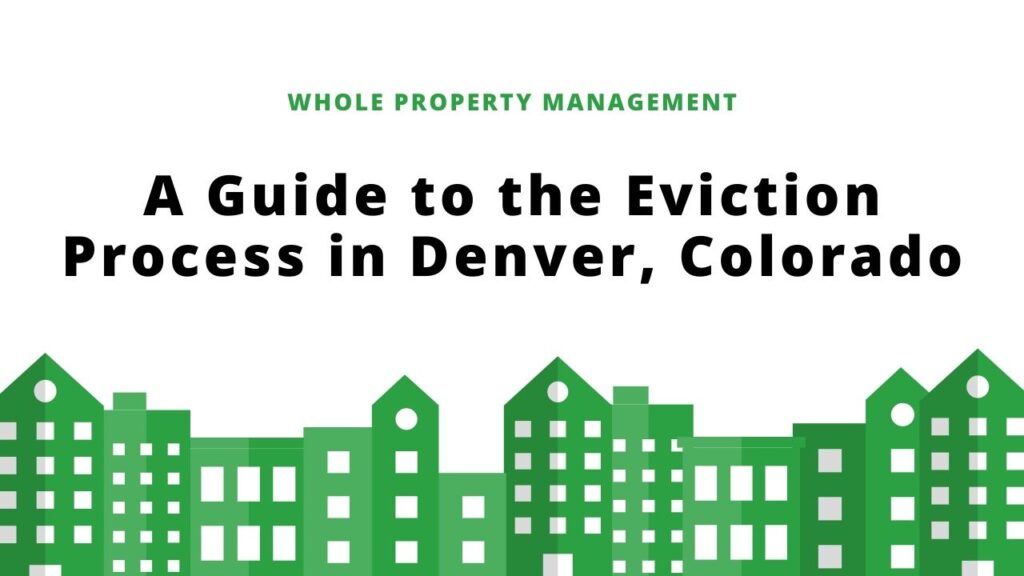Are you a landlord in Colorado? Facing the daunting task of evicting a tenant? Don’t worry, we’ve got you covered.
In this article, we’ll guide you through the Colorado eviction process, step by step. From serving eviction notices to filing a lawsuit, we’ll provide you with all the necessary information to protect your rights.
We’ll even cover the eviction of squatters and estimate the cost. So, let’s dive in and equip yourself with the knowledge you need to navigate the eviction process in Colorado.
Eviction Notice Requirements
To initiate the eviction process in Colorado, you, as a landlord, must serve an eviction notice to the tenant. According to Colorado eviction laws, there are specific requirements for the eviction notice.
There are three types of eviction notices that can be served: the Rent Demand Notice, the Lease Violation Notice, and the Unconditional Notice to Quit.
The Rent Demand Notice gives the tenant 10 days to pay the rent or quit the property.
The Lease Violation Notice gives the tenant 10 days to cure the violation or quit the property.
The Unconditional Notice to Quit gives the tenant 3 days to vacate the property with no chance to remedy the situation.
It’s important to serve the eviction notice according to Colorado eviction laws, guidelines, and laws to evict a tenant.
Filing an Eviction Lawsuit
To file an eviction lawsuit in Colorado, you’ll need to start the Colorado eviction process and complete and submit the Eviction Complaint and Affidavit form to either the Colorado District Court or County Court. This form is essential as it outlines the details of your case and the reasons for eviction.
Once you have filled out the form, you’ll need to pay the required filing fee, which varies depending on the court you choose.
After submitting the form and paying the fee, the court will serve the tenant with a summons, which informs them of the lawsuit and requires their appearance in court. It’s important to note that the summons must be served along with a copy of the complaint.
Court Hearing and Judgment
In the court hearing for an eviction lawsuit in Colorado, you, as the landlord, will present the lease agreement, eviction notice, complaint, and evidence to support your case. This is your opportunity to provide the necessary documentation and evidence to convince the judge that the tenant should be evicted.
You should be prepared to explain the reasons for the eviction and provide any additional information that supports your claim. The judge will carefully consider the evidence and arguments presented by both parties before issuing a judgment.
If the judge rules in your favor, they’ll grant an order for possession and issue a writ of restitution, allowing you to regain control of the property.
Remember that both parties have the right to appeal the judgment to the district court if they disagree with the decision.
Eviction of Squatters in Colorado
If you discover squatters living in your vacant property, take immediate action to address the situation and protect your rights as a landlord in Colorado. Squatters can be charged as criminal trespassers and evicted like any other tenant.
However, in order to invoke Colorado squatters’ rights, they must have lived in the property for 18 consecutive years or held color of title and paid property taxes for 7 consecutive years. Additionally, their possession must be hostile/adverse, actual, open and notorious, exclusive, and continuous. If the squatters meet all the criteria, they can file an action for adverse possession to legally obtain the title to the property.
To handle the situation, follow these steps:
1. Call local law enforcement.
2. Determine if they’re trespassers or squatters.
3. Contact the sheriff’s office if they’re squatters.
4. Send an eviction notice.
5. File for eviction if they refuse to leave.
Remember to document all interactions and keep a record of any paperwork or correspondence related to the situation.
Considerations and Costs of Eviction
Factor in the potential expenses and implications before proceeding with the eviction process as a Colorado landlord.
Evictions can be costly, both in terms of financial expenses and the impact on your time and stress levels. The cost of an eviction in Colorado can vary widely depending on the specific case and circumstances.
In addition to the court filing fees, you should also consider other potential losses, such as lost rent during the eviction process. It’s important to review the Colorado Rules of Civil Procedure, as well as any local laws and requirements that may apply to your municipality.
Given the complexity of the eviction process, it’s often advisable to seek the assistance of an eviction attorney to ensure that you navigate the process correctly and minimize potential costs and risks.
Conclusion
In conclusion, understanding the eviction process in Colorado is crucial for landlords. By following the necessary steps and requirements, you can protect your rights and successfully navigate through the eviction process.
